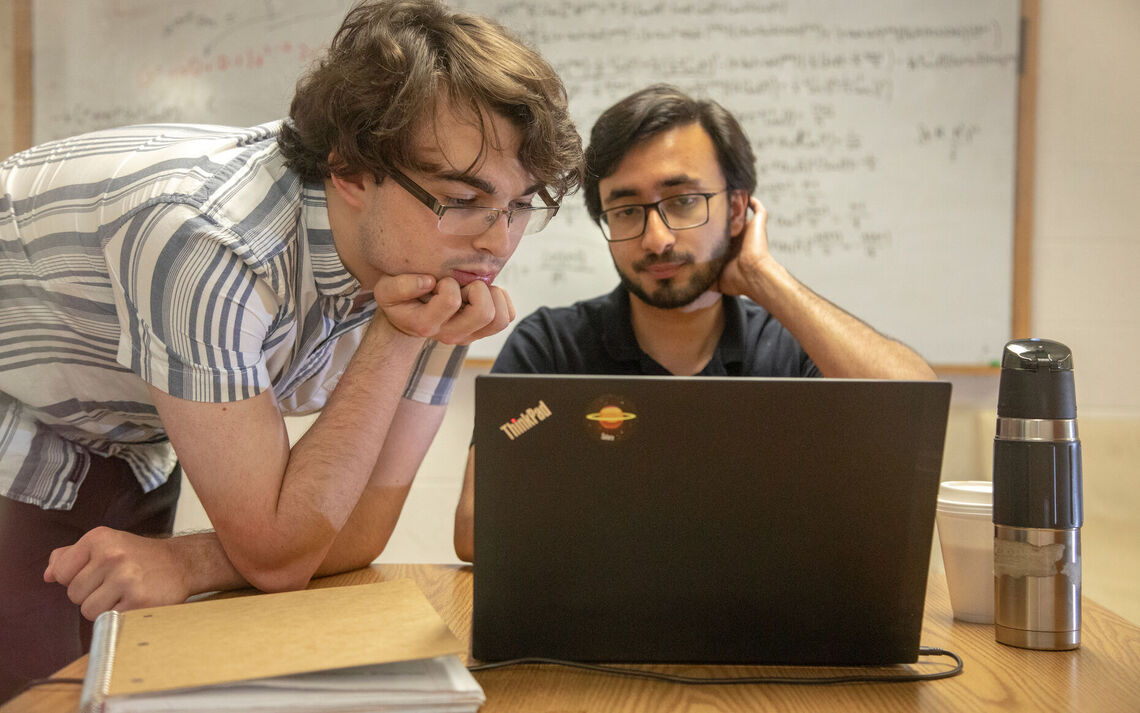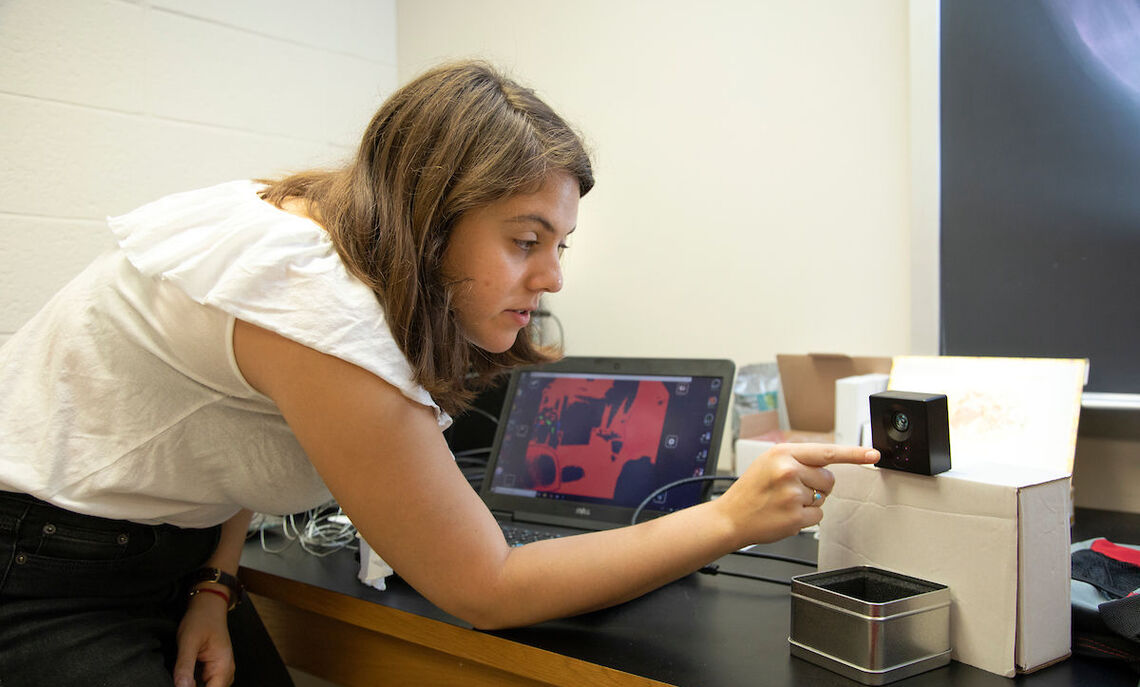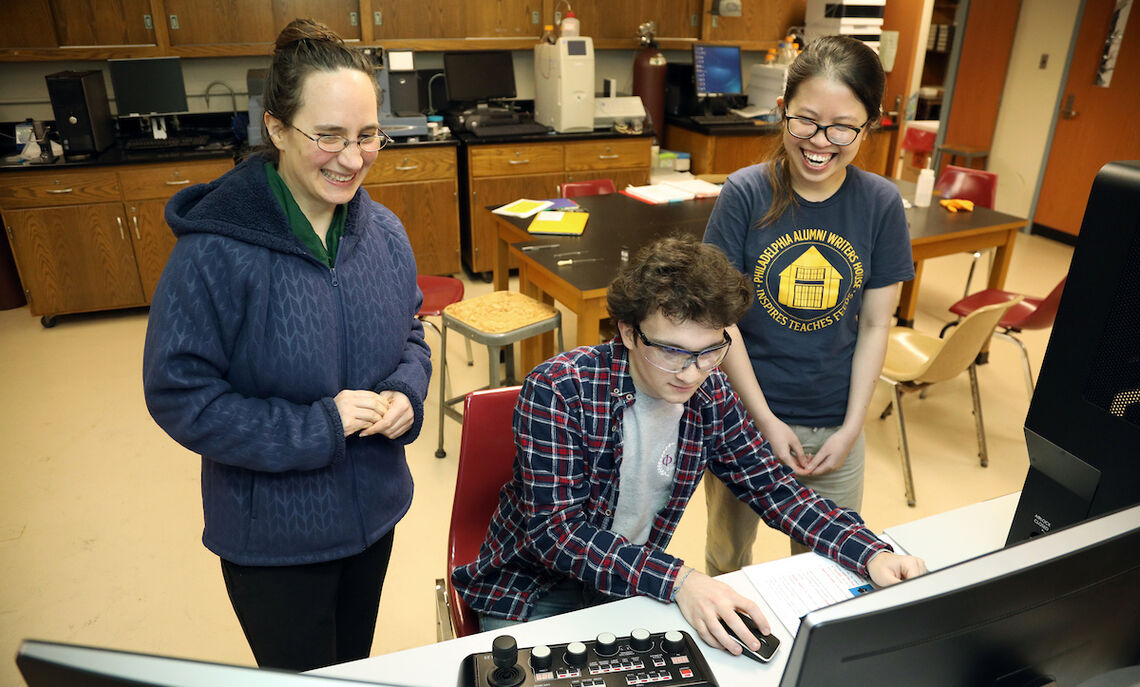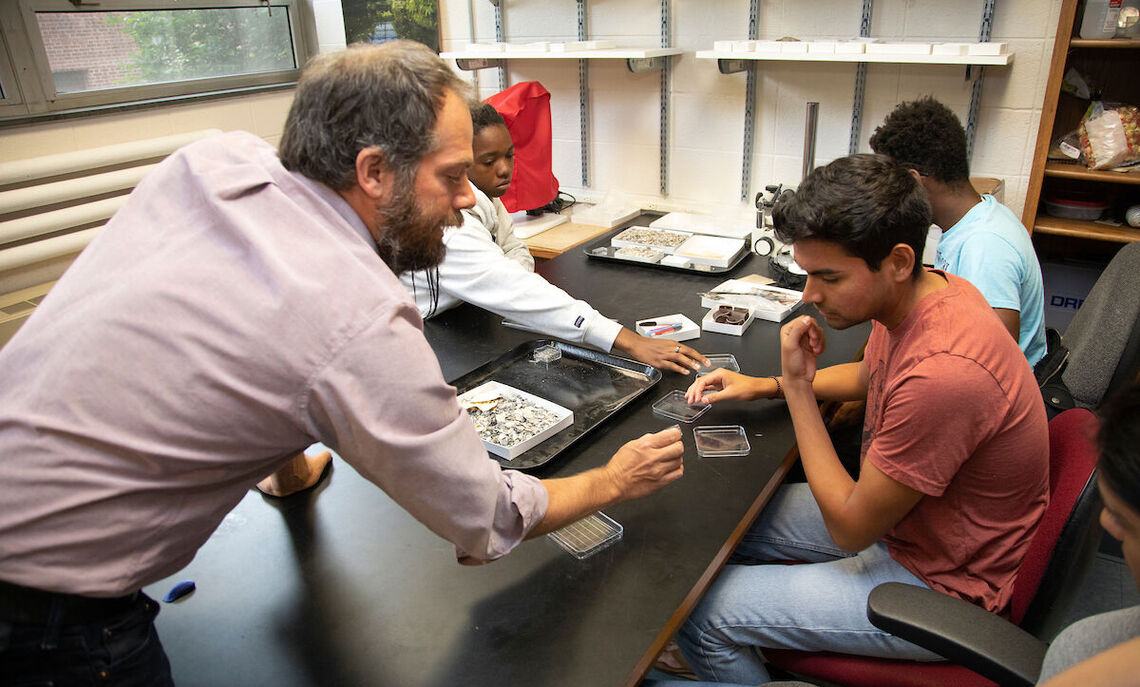F&M Stories
Four F&M Alums Awarded National Science Fellowships
Four Franklin & Marshall College alumni recently received National Science Foundation Graduate Research Fellowships to advance their graduate work.
They shared their thoughts about how F&M prepared them for graduate school and offered some advice to Diplomat undergraduates majoring in their field of study.
Conor Larison '21
Cono Larison '21 begins graduate studies this fall in astrophysics at Rutgers University.
How did F&M prepare you for graduate school?
Working with Professors Ryan Trainor, Fronefield Crawford, Amy Lytle, and Greg Adkins provided me with invaluable insights into physics research and how to make the field more inclusive. They have continuously advocated for me as a disabled student, which has been tremendously impactful on my self-confidence. They also have opened doors to research opportunities at other institutions, where I was mentored by many incredible scientists.
What is your research focus?
Searching for special white dwarf stars that had survived an explosion called a Type 1a Supernova. These stars could tell us about what kind of systems result in these explosions, which are one of the most important astronomical tools we have. My research was to build on this project and to search for images of these explosions that were lensed by massive objects (such as galaxy clusters) that may lie in front of them. I hope to continue this work at Rutgers.
What advice would you give to current F&M students?
Get to know as many people as you can in the field. Make connections in the area you are interested in, and if you don't know what you are interested in yet, explore various topics of research. Also, focus on more than just the science. Try to make the field a more inclusive and inviting space for those from marginalized backgrounds, and your work will not go unnoticed.

In this 2019 photo, Conor Larison '21 (left) and Faisal Alam '19 complete physics summer research.
Gabriella Sallai '19
Gabriella Sallai '19 just finished a master's degree program in engineering at Penn State.
How did F&M prepare you for graduate school?
I think having the opportunity to joint major in a [science, technology, engineering and math] STEM and non-STEM field really helped me start figuring out how to intertwine those two areas. Specifically, my capstone project for WGSS [Women's, Gender and Sexuality Studies] really prepared me and gave me the opportunity to better understand the STEM career pipeline and the societal structures that influence this pipeline/often force breakdowns in it. Professor Ken Hess in the Department of Chemistry was, and continues to be, one of my greatest mentors and advocates, always reminding me to be confident in myself and not to be fearful of new, different, or challenging things. Professor Amy Lytle in the Department of Physics continues to be one of the most inspiring professors I interacted with at F&M, always advocating for herself even when there's pushback and working to make the environment a more welcoming place.
What is your research focus?
Studying graduate engineering students' mental health as they continue through their degree programs.
What advice would you give to current F&M students?
All disciplines are connected in one way or another and making sure to fill your bucket in the things you like that may be outside your major will ultimately make you a better researcher or student and will 100% help you feel more fulfilled in your time at F&M!

Gaby Sallai's work as a summer Hackman Scholar involves testing a laser and a "flight-of-time" camera for the four-wheeled robot.
Han Le '19
Han Le '19 has completed her second year of studies for a doctorate in chemistry at the University of California, Berkley.
How did F&M prepare you for graduate school?
I came to F&M thinking I was going to be a chemistry major and become a doctor, and at the time, I did not even know areas such as physical chemistry and materials chemistry existed within my chemistry major. In my first year, I took a Connections course called 'Geographic Boundaries,' and through this course, I became interested in research that could chart a sustainable solution to the energy crisis. So I joined Professor Kate Plass lab in the Department of Chemistry, and we started studying nanoparticles that have really significant applications in solar energy conversion devices. My experience in the Plass Lab was inspiring and life-changing, as I grew as an independent scientist and realized how much I enjoy the interdisciplinary and innovative thinking necessary in materials research.
What is your research focus?
Understanding and controlling phase transitions in these so-called perovskite materials. These materials have set a new world record for their solar cell efficiency, but their applications are hindered by their instability and structural changes triggered by light or moisture. So I'm trying to probe the mechanism behind that process and how we can control it to design better and more stable solar cells.
What advice would you give to current F&M students?
Be open-minded and go out of your comfort zone to explore new things. Identify your goals early and make a plan to achieve those goals, but also know that regardless of your experiences and knowledge, your confidence will hit rock bottom quite often when you are doing science! Be kind to yourself and keep that curiosity alive, because only you can define what your successes are.

In this 2018 photo, Han Le and fellow chemistry major Angus Unruh work with Professor Kate Plass on the latest computer microscope.
Andres Marquez '19
Andres Marquez '19 is studying geosciences at Stanford University.
How did F&M prepare you for graduate school?
The opportunity to conduct independent research while working closely with inspiring researchers, professors, and mentors is the reason I'm pursuing a career in STEM at the graduate level. I'm extremely grateful to my research adviser, Professor Paul Harnik, (now at Colgate University) for making research approachable and exciting. I wouldn't be in graduate school without the network of mentors that supported me throughout my undergraduate career.
What is your research focus?
Exploring how vulnerability to hypoxia changes with temperature for different marine invertebrates. We can use this information to explore how marine animals have responded to changes in Earth's climate in the past while also exploring how marine animals are responding to climate change today.
What advice would you give to current F&M students?
Allow yourself to explore your interests and passions.

In this 2018 photo, Andres Marquez '19 works with Geoscience Professor Paul Harnik on the ocean floor sediments they collected from the Gulf of Mexico in their research on biodiversity.
Related Articles
April 26, 2024
Senior Spotlight: Rachel Rubins
Between F&M Mock Trial team, sorority life and Hillel, senior Rachel Rubins “found a support system of friends I see as family.” She also discovered a passion for history. See what advice Rachel has for incoming students.
April 19, 2024
Senior Spotlight: Huaizhi Liu
Huaizhi Liu embraced new opportunities at F&M, including researching in the physics lab, being an admission tour guide, learning how to use power tools with Catastrophic Relief Alliance, and being production manager of Choomies.
April 9, 2024
Campus Celebrates Solar Eclipse
It’s not every day you catch a cosmic phenomenon between classes. F&M students did just that Monday, witnessing the country’s last total solar eclipse until 2044.
